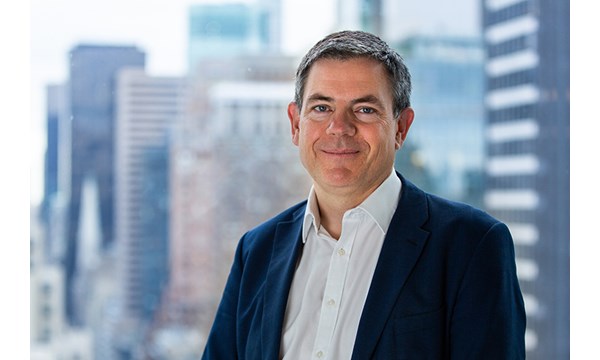Sign up today to get the best of our expert insight in your inbox.
How global trade can help build the clean energy economy
Leveraging trade rules for a low-carbon future
Ed Crooks
Vice Chair Americas and host of Energy Gang podcast

Ed Crooks
Vice Chair Americas and host of Energy Gang podcast
Ed examines the forces shaping the energy industry globally.
Latest articles by Ed
-
Opinion
What the "big beautiful bill" means for US energy
-
Opinion
Inside the ‘crazy grid’
-
Opinion
The Big Beautiful Bill is close to passing
-
Opinion
Ceasefire in the Israel-Iran conflict
-
Opinion
The impact of the Israel-Iran conflict escalation on the global energy market
-
Opinion
EBOS: the unsung hero that’s accelerating clean energy deployment
As the world struggles to co-operate on the energy transition, international trade rules can be a foundation for the new low-carbon economy.
Ed Crooks is joined by regular guest Amy Myers-Jaffe, Director of New York University’s Energy, Climate Justice, and Sustainability Lab, and new guest on the Energy Gang: Dan Esty, who is the Hillhouse Professor of Environmental Law and Policy at Yale University. Dan goes a long way back in clean energy: he was on the US delegation that negotiated the original Framework Convention on Climate Change back in 1992. And he has recently been working for Ngozi Okonjo-Iweala, Director-General of the World Trade Organisation, to develop a sustainability strategy for the global trading system.
Dan argues that the trade system may be the best way to get everyone in the world, and businesses in particular, to “lock arms and move together” to decarbonise the global economy. The goal is to make sure that “no one's competitively disadvantaged by stepping out in front of the pack when it comes to this movement to a clean energy future."
Ed, Amy and Dan explore this concept in this week’s show. The trade system provides a structured framework of rules that can enforce environmental standards globally. By integrating these standards into trade policies, countries can be encouraged to adopt low-carbon technologies without fearing competitive disadvantages. Businesses and countries are reluctant to switch to clean energy if they think their competitors won't do the same. Trade rules can make sure everyone plays fair.
What’s more, a reformed trade system that promotes clean energy technologies can also create economic opportunities around the world. The gang discuss how new rules could help developing countries.
You can find Ed and the show on most social media platforms: we’re @theenergygang on X. Subscribe to the Energy Gang on Apple Podcasts or Spotify so you don’t miss the next show.
For more analysis and to keep up-to-date with everything that happens with the Energy Gang, sign up to our weekly Inside Track newsletter.






